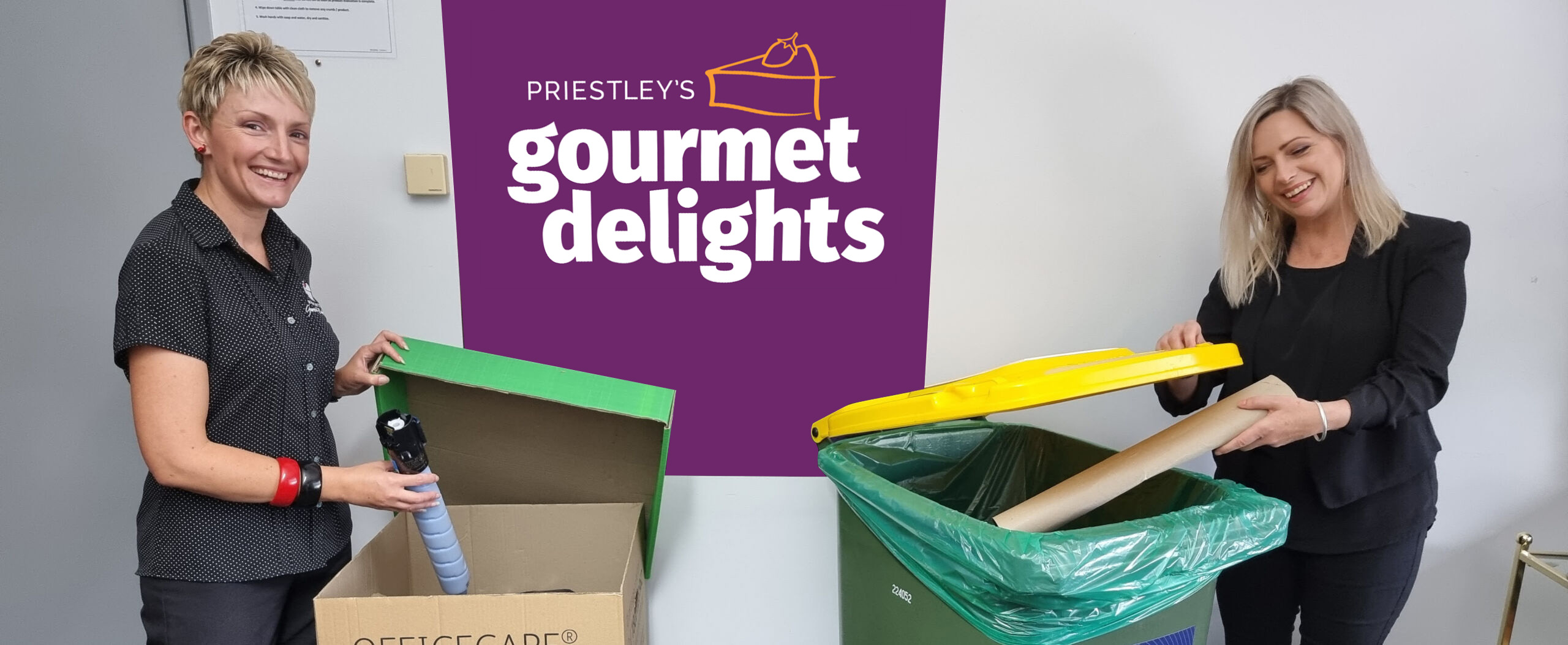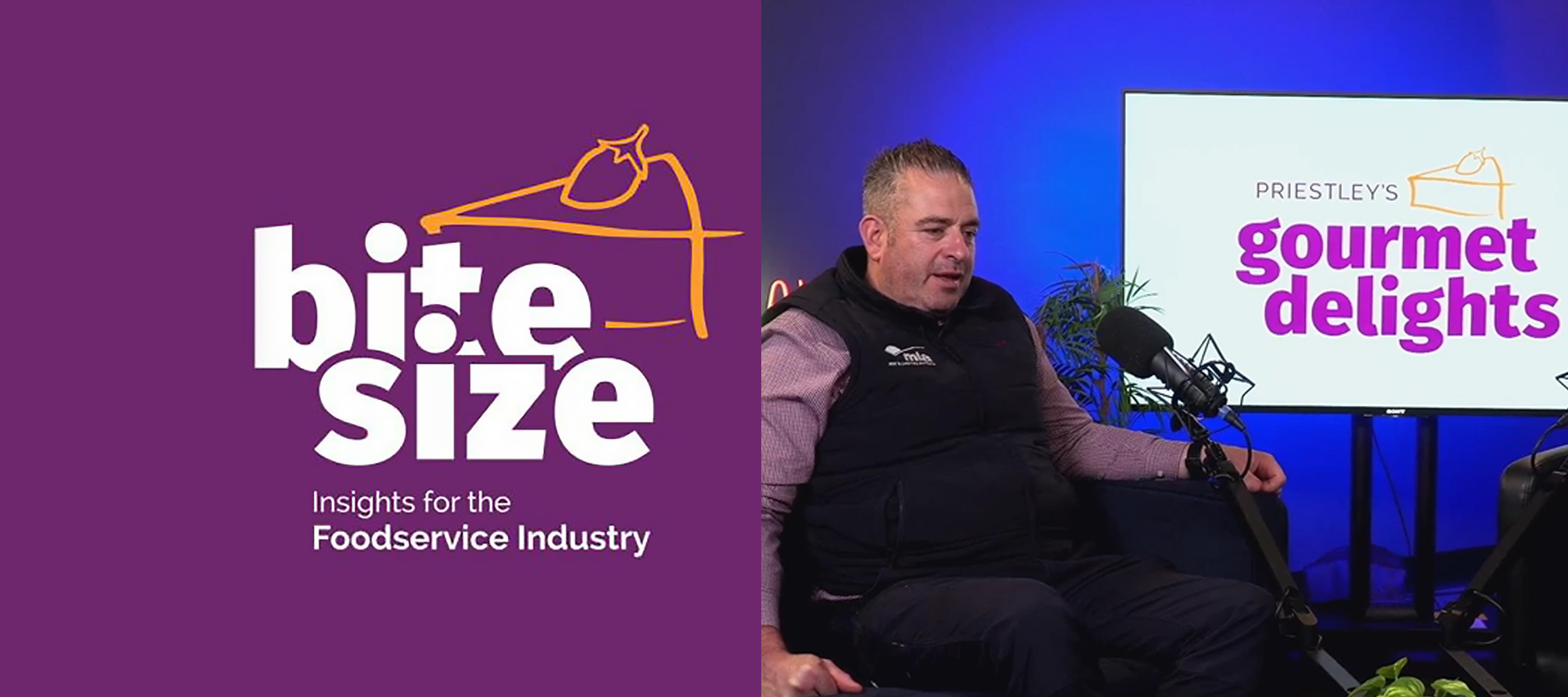At Priestley’s Gourmet Delights, we have set ourselves a number of aspirational goals in our journey to becoming a more sustainable business and reduce our environmental footprint.
One of our paramount goals is to reach zero waste to landfill by 2025, so in November 2019 we reached out to our supply partners for guidance in reducing our waste across our three major waste streams: packaging, organic food and general waste. Over the last two years, our collaboration with SUEZ and Opal, has seen the implementation of enviro programs that have dramatically improved our sustainability:
- SUEZ helped us identify 13 diversion streams, and supported us in the execution by providing us with recycling bins for print toners, paper & cardboard, batteries, compost and co-mingled, just to name a few. Simple things, like ensuring accessibility to appropriate bins, such as paper recycling bins under every desk, and compost bins in staff kitchens, have had a fantastic impact on general waste reduction.
- Through the SUEZ customer network we have been able to collaborate with like-minded local businesses and become a part of the circular economy. Through this network, we have partnered with businesses who are able to re-purpose our bulk sugar and flour bags, diverting them from landfill. We have sourced plastic bins from another food manufacture and re-purposed them for scrap storage to send to the pig farm and fertilizer manufacturers. This has been a rewarding exercise in putting plastics to good use, instead of
into landfill. - Reduce packaging: Working together with Opal, we have re-assessed our packaging size and design to ensure the minimum amount of material while caring for our delicious creations in transit and storage. We are removing plastics from our packaging wherever possible, replacing it with recyclable cardboard. Where plastic is required, we have set a target to only use compostable plastics by 2022. While engaging in this process, Opal identified that the pallets of boxes being supplied for our creations could be palletised in a manner that would require no plastic pallet wrap. This resulted in a direct reduction in plastic consumed in the supply chain. A great outcome for the environment.
- Carbon footprint: We have optimised our pallet configurations to ensure the most efficient transport model. We are also working with suppliers and customers alike to minimise movements and reduce our carbon footprint.






